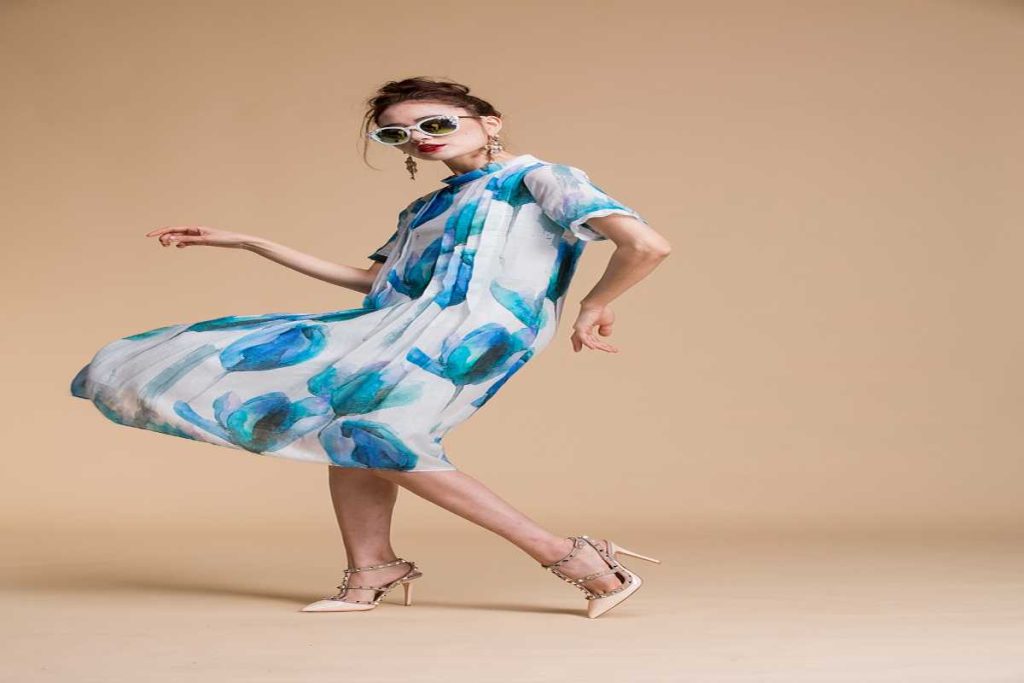The way we dress is often perceived as a reflection of our personal style, but it goes far beyond mere aesthetics. Our clothing choices can significantly impact how we feel, how others perceive us, and even our overall success in various aspects of life. In this blog, we’ll explore the importance of dressing well, the psychological effects of clothing, and how your wardrobe can influence both your personal and professional life.

1. First Impressions Count
When meeting someone for the first time, your appearance is often the first thing they notice. Studies show that it takes only a few seconds to form a first impression, and your clothing plays a crucial role in that judgment.
Why It Matters:
- Immediate Judgments: Research indicates that people often make judgments about your personality, professionalism, and confidence based on your attire. A well-put-together outfit can lead to favorable evaluations, whereas casual or mismatched clothing might result in negative assumptions.
- Confidence Booster: Wearing clothes that make you feel good can enhance your self-esteem. When you look good, you often feel more confident, which can positively impact your interactions with others.
Tip: Choose outfits that are suitable for the occasion. Whether it’s a job interview, a casual gathering, or a formal event, dressing appropriately will help you make a lasting impression.
Example: Consider a job interview scenario. A candidate who arrives in a well-fitted suit may be perceived as more serious and committed compared to one wearing jeans and a t-shirt.
2. Clothing Affects Your Mood
The connection between clothing and emotions is more profound than you might think. What you wear can influence how you feel throughout the day.
Why It Matters:
- Mood Enhancement: Certain colors and styles can uplift your mood. For instance, wearing bright colors may evoke feelings of happiness, while darker shades can sometimes lead to a more subdued mood. Studies have shown that colors can elicit emotional responses, and our clothing choices can trigger those feelings.
- Empowerment Through Style: Wearing clothes that resonate with your identity and make you feel good can empower you. This sense of empowerment can motivate you to take on challenges with confidence.
Tip: Experiment with different styles and colors to discover what makes you feel the best. Consider keeping a wardrobe that reflects various aspects of your personality.
Example: A study found that individuals who wore formal clothing performed better on abstract thinking tasks than those in more casual attire, demonstrating how clothing can impact cognitive function.
3. The Power of Professionalism
In professional settings, your attire can significantly influence how others perceive your competence and professionalism. Dressing well for work can enhance your reputation and even impact your career advancement.
Why It Matters:
- Perceived Authority: Research indicates that people who dress professionally are often viewed as more capable and competent. This perception can influence hiring decisions, promotions, and collaborations.
- Workplace Culture: Many workplaces have specific dress codes or cultures that emphasize the importance of professional attire. Aligning your clothing with these expectations can help you fit in and thrive.
Tip: Invest in a versatile professional wardrobe that includes well-fitted suits, blouses, or tailored pants. Having a variety of options can help you dress appropriately for different situations at work.
Example: In a corporate environment, an employee who consistently wears business attire is often more likely to be entrusted with important projects and responsibilities than someone who dresses casually.

4. Clothing and Social Identity
The way we dress can serve as a form of self-expression and can help us communicate our identity to the world. Our clothing choices can signal various social cues, interests, and affiliations.
Why It Matters:
- Building Connections: Sharing similar styles or fashion choices can help you connect with like-minded individuals. Whether it’s a specific trend, brand, or style, your clothing can foster community and belonging.
- Cultural Significance: Clothing often carries cultural and social meanings. Understanding these nuances can help you navigate various social settings and show respect for different backgrounds.
Tip: Be mindful of how your clothing reflects your values and interests. Authenticity in your style can enhance your confidence and help you attract people who resonate with your identity.
Example: Attending a music festival? Wearing band merchandise or styles associated with a specific genre can help you connect with fellow attendees who share similar interests.
5. Dressing for Success
The phrase “dress for success” emphasizes the link between your clothing choices and your achievements. When you dress intentionally, you set the tone for how you approach tasks and challenges.
Why It Matters:
- Mindset Shift: Dressing well can shift your mindset from casual to focused and determined. This mental transition can increase productivity and motivation. For example, wearing workout gear can mentally prepare you for exercising.
- Goal Orientation: Wearing clothes that align with your goals—be it for work, fitness, or social engagements—can help you stay committed to achieving those goals.
Tip: Choose outfits that make you feel empowered and aligned with your objectives. For example, wear activewear when heading to the gym to mentally prepare yourself for your workout.
Example: Athletes often wear their team uniforms not only for identification but to foster a sense of unity and commitment. Similarly, dressing up for work can create a professional atmosphere that encourages productivity.

6. Practical Considerations
Beyond psychological effects, there are practical reasons why dressing well matters. The right attire can enhance comfort and functionality in daily activities.
Why It Matters:
- Comfort and Performance: Wearing the appropriate clothing for different tasks can improve your performance. For example, comfortable shoes are essential for physical activity, while breathable fabrics can enhance focus during hot weather.
- Adaptability: Having a versatile wardrobe allows you to adapt to various situations, from casual outings to formal events, without the stress of deciding what to wear last minute.
Tip: Invest in quality pieces that are both comfortable and stylish. Versatile clothing can help you navigate different settings with ease.
Example: Athletes often perform better in clothing designed for their specific sport, illustrating how functional attire can enhance performance. Similarly, business professionals may feel more at ease and focused in tailored outfits that allow for ease of movement.
7. Clothing as a Form of Self-Care

Dressing well is also a form of self-care. Taking the time to choose your outfit thoughtfully shows respect for yourself and can promote a positive self-image.
Why It Matters:
- Mental Health Benefits: Engaging in self-care routines, including dressing well, can enhance overall mental well-being. It can reduce feelings of anxiety and improve mood.
- Ritual and Routine: Establishing a daily dressing routine can create a sense of normalcy and stability, especially during stressful times.
Tip: Set aside a few moments each day to choose an outfit that makes you feel confident. This simple act can uplift your spirits and provide a sense of control over your day.
Example: Many people find that putting effort into their appearance—even when working from home—can create a sense of purpose and boost their productivity throughout the day.
Conclusion
The way you dress matters more than you think—it influences first impressions, impacts your mood, affects professionalism, expresses your identity, and enhances your overall well-being. By being mindful of your clothing choices, you can harness the power of fashion to improve your confidence, connections, and success in various aspects of life.
Dressing well doesn’t mean sacrificing comfort or individuality; it’s about finding a balance that resonates with you. As you explore and refine your style, you’ll discover that your clothing can be a powerful tool for personal expression and empowerment. So, the next time you get dressed, consider how your choices can shape your day and your life. By embracing the importance of how you present yourself, you take a significant step toward cultivating a fulfilling and successful life.

